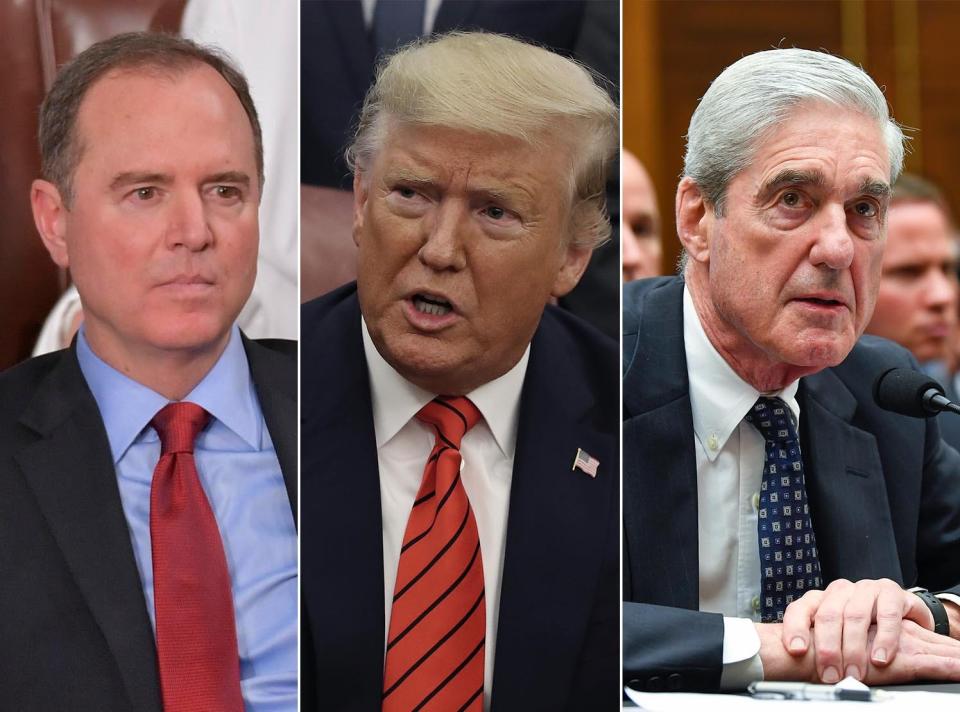House and Mueller spectacularly failed to rein in Trump. That's going to haunt America.
It has been said that it is better to journey hopefully than to arrive. Nowhere is this more true than when it comes to the institutions that make American democracy function. Process matters. In fact, it matters more than any particular result. A good result may address the needs of the moment. But a good process will serve the country long after the result you were so desperate to get has been forgotten.
Unfortunately, in the heat of the political moment, both former special counsel Robert Mueller and the House of Representatives forgot this and put practical considerations ahead of establishing principle.
Mueller for the most part did an immensely thorough job of investigating Russian interference in the 2016 elections, except in one critical respect. For much of his investigation, Mueller sought to negotiate an interview with President Donald Trump. Had it been literally anyone else, rather than negotiate, Mueller would simply have asked him for an interview and brought him before the grand jury if he refused. Instead, Mueller spent months seeking Trump’s consent.
Ultimately, Trump agreed to provide written answers to Mueller’s questions. Though Mueller admitted the answers Trump provided were generally inadequate and even untruthful, he nonetheless declined to issue a subpoena demanding that Trump testify before the grand jury because he knew the resulting court battle would take many months to resolve and he thought it unwise to let the investigation drag on that long. As a result, Mueller wrapped up his investigation without ever interviewing the president.
Rewarding Trump for bad behavior
That was an error on two counts.
First, rewarding bad behavior gets you more bad behavior, not less. Trump learned that simply refusing to cooperate could be a successful strategy and that investigators might lack the patience to challenge his claims, no matter how outrageous or unfounded. Mueller’s failure to issue and enforce a subpoena to get Trump to provide evidence was the direct ancestor of his blanket stonewalling in the impeachment investigation.
Second, Mueller missed an opportunity to strengthen the guardrails of our democracy. Going all the way back to the 1803 Marbury v. Madison decision, America’s institutions have been shaped through principled confrontation rather than expedient compromise. Had Mueller issued a grand jury subpoena to Trump and enforced it through the courts, the case would have established the scope of presidential privilege for all time.

The irony here is that Mueller was in a hurry to complete his investigation and pass his findings to Congress so it could take appropriate action. Yet Mueller’s failure to take the time to follow through ended up hobbling Congress when it did act. The impeachment investigation would have played out completely differently had there been case law on the books making it absolutely clear that even the president was duty bound to honor a subpoena and provide evidence in an investigation — especially when that investigation concerned his own potential misconduct.
Impeachment: Senate delivers brutal dose of reality and ensures future corruption
The House made the same fundamental mistake as Mueller and let short-term, practical considerations override the value of establishing lasting principles. When Trump refused to cooperate with its impeachment investigation, the House did not challenge him. Rather, determined to complete the investigation on a schedule, the House simply cited Trump’s refusal as one of the articles of impeachment.
Legacy is that obstruction pays
And we know how that turned out. If the House had focused on the process, it would have challenged the president’s various claims of privilege in court. This might have dragged on for months (though in the Nixon impeachment inquiry, the courts acted with commendable speed). But even if a ruling had not come until after the 2020 election, the legacy of the Trump impeachment proceedings would have been firmly established limits on claims of executive privilege, which no future president would ever dare challenge again.
Instead, the legacy is the lesson that obstruction pays, and that vague and dubious claims of executive privilege are as effective at thwarting congressional oversight as legitimate ones. This is, presumably, not what House Speaker Nancy Pelosi had in mind when she decided that an impeachment investigation was necessary for the good of the republic.
DOJ as tool of Trump: Ex-Starr Whitewater counsel says Barr threatens US justice by doing Trump bidding on Stone
The American experiment has endured because, from the founding, we have believed that process and principle are always more important than any particular outcome. We respect the outcomes of elections, even those we dislike, because we know that the principles of democracy are infinitely more important than who wins. We defend prosecutorial independence and trial by jury because we know that the principle of an independent justice system is far more important whether any particular defendant, even someone we are convinced is guilty, escapes punishment.
So must it be with the powers of Congress. Knock-down, drag-out fights between the legislative and the executive branches are far less familiar than the work-a-day business of the courts or our regular election cycle. But the democratic guardrails those conflicts can establish are no less important to America’s continued political health than are fair and free elections or impartial justice. Congress spectacularly failed to teach President Trump a lesson during the impeachment proceedings. But there’s still hope that Congress may have learned one instead.
Chris Truax, an appellate lawyer in San Diego, is an adviser to Republicans for the Rule of Law and a member of USA TODAY's Board of Contributors.
You can read diverse opinions from our Board of Contributors and other writers on the Opinion front page, on Twitter @usatodayopinion and in our daily Opinion newsletter. To respond to a column, submit a comment to letters@usatoday.com.
This article originally appeared on USA TODAY: Donald Trump learned all the wrong lessons from impeachment and Mueller

